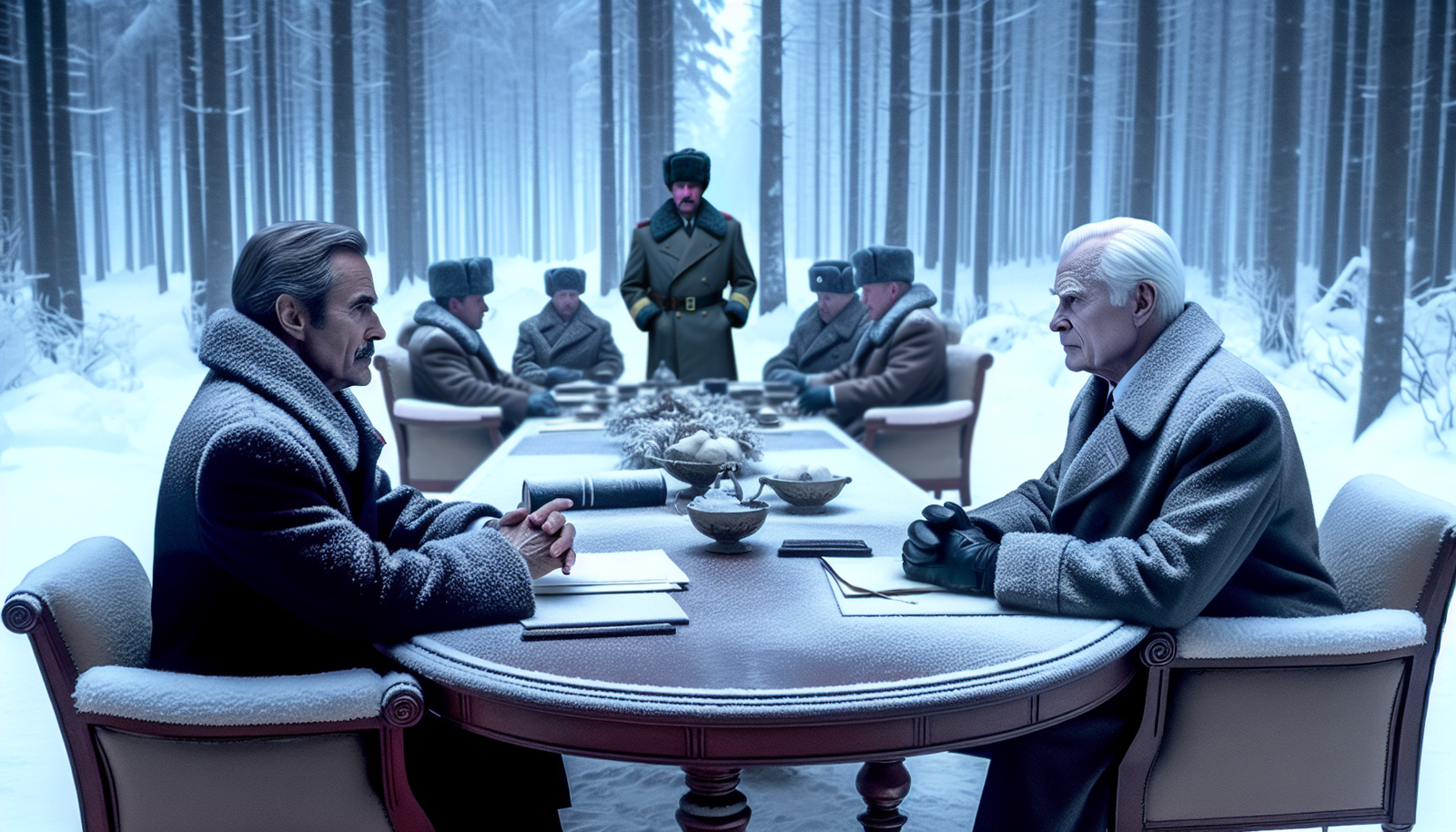Trump and Putin’s Crucial Meeting in Alaska: A Path to Peace in Ukraine?
In a significant move on the world stage, U.S. President Donald Trump is scheduled to meet with Russian President Vladimir Putin in Alaska. The focus of this high-stakes meeting will be the ongoing conflict in Ukraine, a situation that has escalated tensions between the two nations and drawn in global attention. With Trump emphasizing “severe consequences” if peace is not achieved, the meeting’s outcomes could have lasting implications for international relations.
Background on the Ukraine Conflict
The Ukraine conflict has been a focal point of geopolitical tensions since 2014, following Russia’s annexation of Crimea. This act was met with international condemnation and sanctions against Russia, leading to a prolonged conflict in Eastern Ukraine involving Russian-backed separatists. Despite numerous attempts at peace talks, the situation remains volatile, with ongoing skirmishes and casualties reported.
The Importance of the Alaska Meeting
Holding this crucial dialogue in Alaska symbolizes geographical and political significance. Alaska’s strategic position as a bridge between the continents makes it an ideal location for discussions aimed at easing tensions. Furthermore, the choice reflects a willingness from both leaders to engage directly and seek resolutions away from the scrutinizing eyes of European capitals.
Trump’s Position on Ukraine
President Trump’s administration has taken a uniquely complex stance on Ukraine. While he has expressed a desire for better U.S.-Russia relations, he has also voiced strong support for Ukraine, viewing its independence and territorial integrity as essential. His stern warning of potential “severe consequences” signals an understanding that failure to achieve peace could lead to a resurgence of hostilities, which might further complicate relations with NATO and the European Union.
Putin’s Strategy
On the other hand, President Putin’s approach has generally been characterized by assertiveness. Russia’s geopolitical interests in Ukraine are deeply rooted, and any sign of concession can be seen as weakness in the eyes of Russian domestic politics. Putin’s participation in these discussions suggests a potential willingness to negotiate, but one must be cautious about his long-term intentions.
The Global Impact of Their Meeting
The implications of the Trump-Putin meeting in Alaska extend beyond the U.S. and Russia. Countries in Europe and around the world are watching closely, as unresolved conflicts can destabilize global markets and security. European leaders, particularly from nations bordering Russia, are apprehensive about escalations or appeasements that could lead to increased aggression.
Potential Outcomes
1. Renewed Peace Talks: One of the most optimistic scenarios would involve a renewed commitment to diplomatic solutions from both leaders. A clear outline for peace talks and a roadmap to de-escalate hostilities could provide a stabilizing influence on the region.
2. Increased Sanctions: If the meeting results in continued Russian aggression, the U.S. and its allies may impose further sanctions, potentially leading to a deeper economic rift.
3. Strategic Alliances: The discussions may lead to new strategic alliances as both leaders navigate their countries’ interests in light of potential outcomes from the meeting.
Conclusion
As President Trump prepares to meet President Putin, the world watches with bated breath. The Ukraine conflict is more than just a regional issue; it reflects the intricate web of global relations. If the leaders can find common ground, it could pave the way for a lasting peace. However, should dialogue fail, the consequences may echo throughout the international community.
In summary, the Trump-Putin dialogue is a potential turning point that carries significant weight in the future of U.S.-Russia relations and the ongoing Ukrainian conflict. We must all hope for a peaceful resolution as the stakes have never been higher, and the global community is counting on these leaders to act in the interest of peace.

